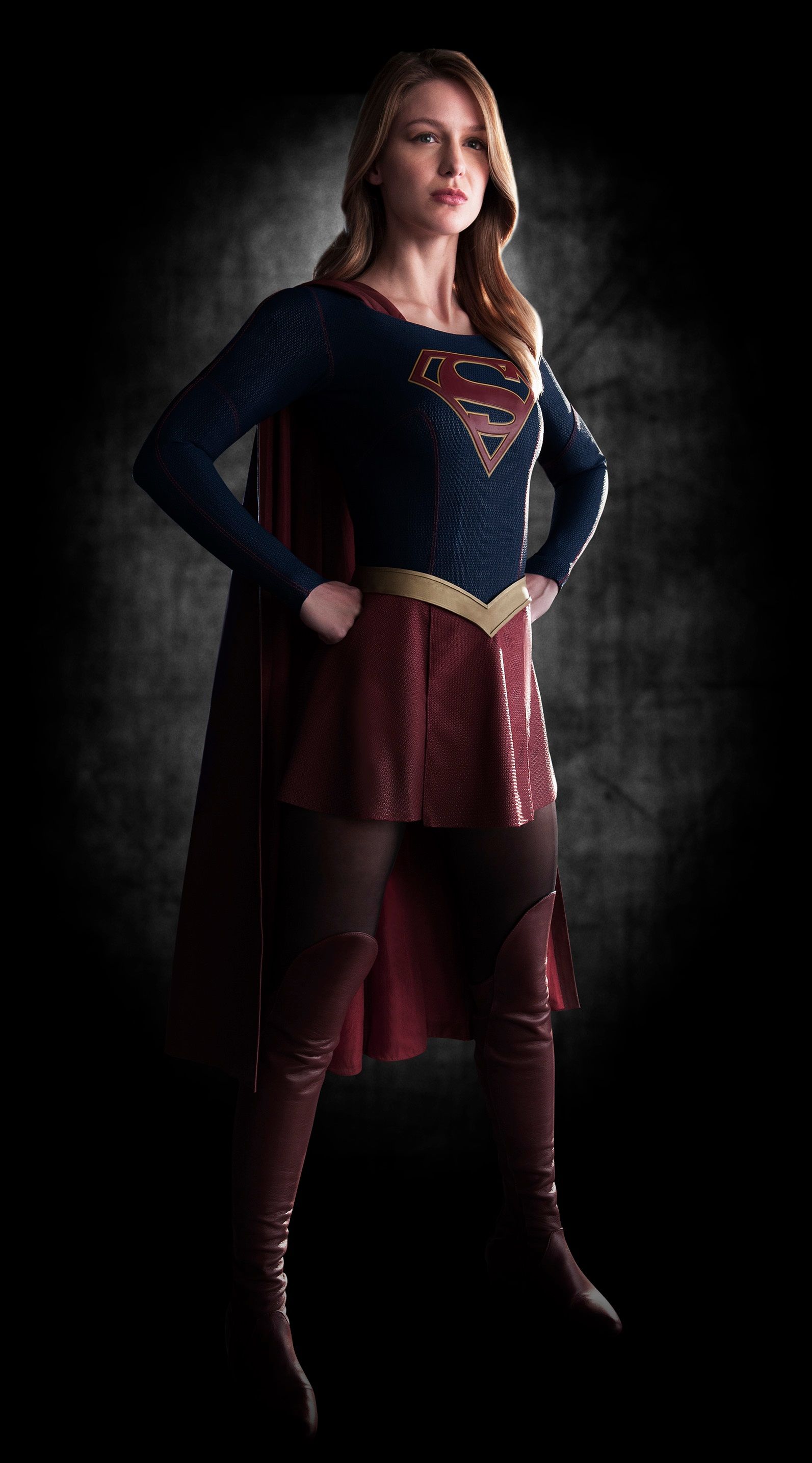I wasn’t expecting Supergirl to get a costume. After all, this is the year 2015, and what the average female heroine wears has been dramatically reimagined and re-styled (i.e. Cinderella, Frozen). Also, it’s a network tv show, not a feature film so the “signature” costume had become irrelevant in my mind.
 |
| Original image credit. ScreenRant.com (http://screenrant.com/supergirl-tv-show-suit-images/) |
But when Kara suddenly starting modeling a montage of costumes in front of her co-worker, Winn (not a designer or engineer), I was expecting an outfit for the ages, but was disappointed that she only ended up with one that screams, “Meh.” It was just one thread short of starting a trend.
12. It’s not seasonal. Even if red and blue were allowed to be worn together, Supergirl still needs her colors to reflect the seasons. For instance,
Winter = santasuit red and blue/green evergreen,
Spring = poppy and robin’s egg,
Summer = red rose and aqua
Fall= burgundy and navy.
11. It’s overstated. Her costume yells, “SUPERHERO”, instead of “Sophisticated Female Alien from 2,000 Light Years Away”. Our clothes tell a story. Hers should tell who she is and where’s she’s from. Kara comes from a royal family and lives in an incredible loft, so why should her costume reflect Halloween instead of Chelsea?
10. It has a cape. As Edna Mode, the superhero costume designer from the Incredibles quipped, “No capes!” Or at least make it reversible two-toned, a sheer cape, or add a lace overlay for that “invisible” look and for evening heroics.
9. That skirt length. I have a feeling that a man (not from the wardrobe department), couldn’t resist taking that hemline up as far as it could go on pretty Melissa Benoist. But extreme minis are terribly outdated. I would have preferred a romper look to suggest a little fashion modesty.
8. Long sleeves and short skirts don’t work.
7. No jewelry? Every Supergirl needs shiny accessories to complete the look. She doesn’t even own a large face watch.
6. They took away her glasses. Of all the times not to have a pair of stylish frames! I know she has laser vision but her specs are spectacular and add a bit of Warby Parker-esque, smarty-pants polish to her ensemble.
5. Pantyhose! Women stopped wearing hose a while back because they're uncomfortable and kept running whether you paid $0.99 or $19.99. Hose are thin, difficult to get on (and out of when you have to pee). Let’s liberate Supergirl’s legs!
4. Tall boots are well…They’re nice, but an ankle boot enhances the rest of the leg instead of hiding it. The girl is bulletproof so there’s no danger of getting her leg nicked. Pair with footless leggings and she's up, up and away!
3. The neckline. Wow, she wears a round-necked blouse. I didn’t know women still wore those. A more modern neckline teases with the slightest show of clavicle before plunging downward (without risking a wardrobe malfunction).
2. It’s not futuristic enough. A superheroine of the 21st century ought to have clothes that instantly change themselves. Why should she be bound by an immutable fashion law of putting one pants leg on at a time? I think Supergirl’s costume should instantly morph based on her mood like a cuttlefish.
1. Ralph Lauren didn’t design it. Neither did any other major designer. A star like Supergirl would instantly attract the attention of the 5th Avenue fashion houses. She shouldn’t be forced to piece her wardrobe together like Cinderella and those poor-overworked mice.
I don’t expect Supergirl to wear haute couture; I wouldn’t mind, but personally, I’m all about pret-a-porter. If Supergirl had to buy her costume from Zara or H&M, what would she pick?
I realize that the point of her costume is to hide her identity, but the audience was forced to believe that only one blurry image of Supergirl was captured on a crowded plane full of HD smartphones. I think we can suspend reality again. After all, she didn’t need a costume to save the plane so why can’t she switch up her clothes or go sans costume every once in a while?
The rest of Kara’s wardrobe choices are shop-worthy despite the stinging insult of her boss, Cat, about her “cheap pants.” But how could the superficial editor not notice Supergirl’s costume? It’s difficult to accept that a character who wears designer clothes wouldn’t instantlly notice Supergirl’s threads.
The new Supergirl costume is a definite upgrade but a few changes are still needed.




